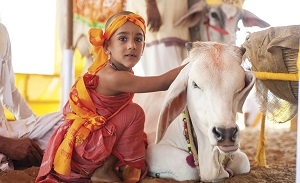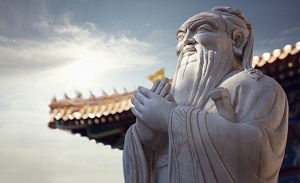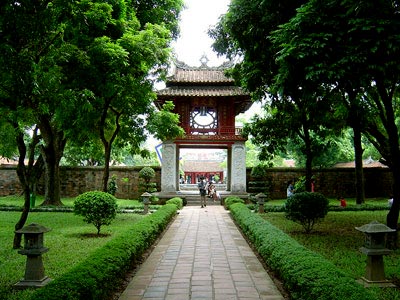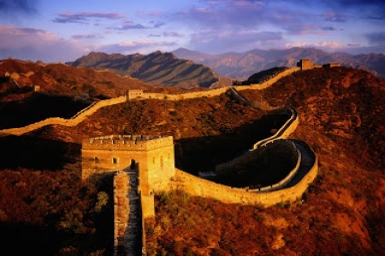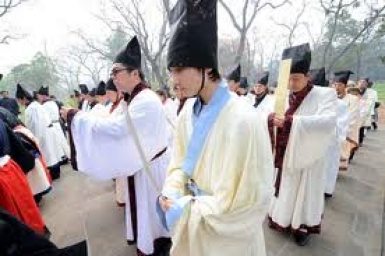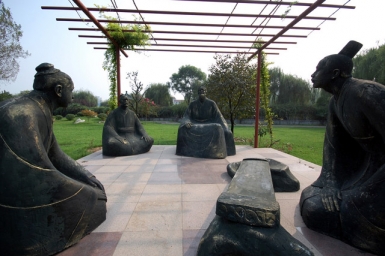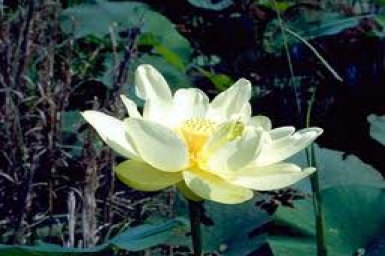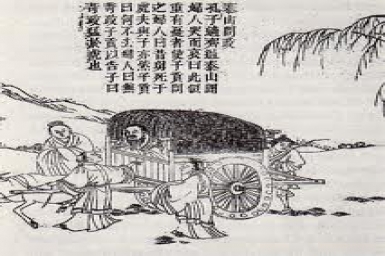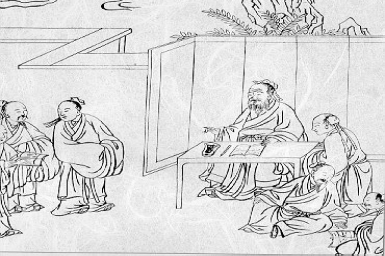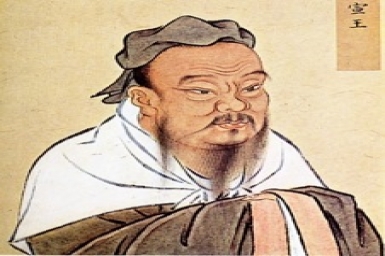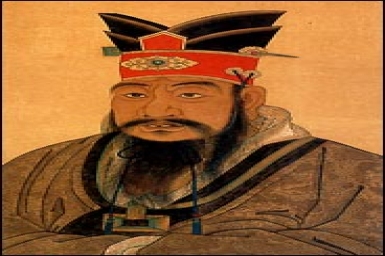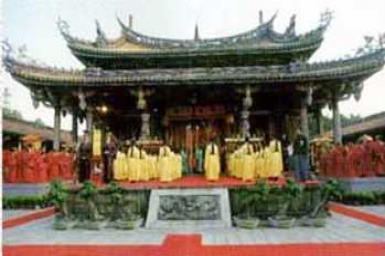-
-
A Year of Pagan Sabbat Rituals
By Admin Webmaster 1/3/2024 10:16:20 AMAs the Wheel of the Year turns and the eight NeoPagan Sabbats pass by, many people like to celebrate with special ceremonies and rituals.
-
Quimbanda Religion: History and Beliefs
By Admin Webmaster 2/20/2023 10:16:33 AMOne of the African diasporic religious belief systems, Quimbanda is found primarily in Brazil, and originated during the period of the transatlantic slave trade.
-
Children of God: History and Teachings of the Notorious Cult
By Admin Webmaster 2/1/2023 11:01:43 AMChildren of God, now known as The Family International, is still active today.
-
Moon Phases and Magical Workings
By Admin Webmaster 11/16/2022 10:31:08 AMFor many Pagans, the cycles of the moon are important to magical workings.
-
Alchemical Sulfur, Mercury and Salt in Western Occultism
By Admin Webmaster 11/9/2022 10:22:12 AMWestern occultism (and, indeed, pre-modern Western science) is strongly focused on a system of four of five elements
-
Hanoi: authorities crack down on the spread of the 'Church of Jesus'
By Admin Webmaster 9/14/2022 9:56:19 AMAccording to local police, the group is "evil" and is operating in several locations without consent.
-
Pagans, Death and the Afterlife
By Admin Webmaster 8/15/2022 10:49:57 AMFor many modern Pagans, there is a somewhat different philosophy on death and dying than what is seen in the non-Pagan community.
-
What's the Difference Between Religion and Spirituality?
By Admin Webmaster 7/22/2022 10:46:44 AMOne popular idea is that there exists a distinction between two different modes of relating with the divine or the sacred: religion and spirituality.
-
11 Egyptian Gods and Goddesse
By Admin Webmaster 7/20/2022 10:28:03 AMThe curation of this content is at the discretion of the author, and not necessarily reflective of the views of Encyclopaedia Britannica or its editorial staff.
-
Who Are Jesus People USA (JPUSA)?
By Admin Webmaster 6/8/2022 9:23:23 AMJesus People USA, a Christian community founded in 1972, is an Evangelical Covenant church on the north side of Chicago, Illinois. About 500 people live together at one address, pooling their resources in an attempt to imitate the first-century church described in the book of Acts.
-
The 8 Most Important Voodoo Gods
By Admin Webmaster 5/9/2022 9:40:59 AMThe loa, or major divine beings of Voodoo, or Vodun, are spirits who serve as intermediaries between man and Bondye, the supreme Voodoo god. The loa, or lwa, appear in different families, including the Ghede, Petro, and Radha.
-
Sami People: Religion, Beliefs, and Deities
By Admin Webmaster 4/4/2022 10:16:10 AMThe Sámi people of Norway, Sweden, and Finland have a rich spiritual history that reflects their culture and traditional ways of life. From reindeer herding to animism, the Sámi have found ways to maintain their ancient culture and religious beliefs despite the ever-changing world around them.
-
Is Astrology a Pseudoscience?
By Admin Webmaster 3/28/2022 11:13:35 AMIf astrology is not really a science, then is it possible to classify it as a form of pseudoscience? Most skeptics will readily agree with that classification, but only by examining astrology in light of some basic characteristics of science can we decide if such a judgment is warranted.
-
Basic Concepts of Wicca
By Admin Webmaster 1/12/2022 9:52:33 AMThere's an old saying that if you ask any ten Wiccans about their spiritual beliefs, you'll get at least fifteen different answers. That's not far from the truth, because with hundreds of thousands of Americans practicing Wicca today (and the actual numbers remain unclear), there are thousands of different Wiccan groups in existence.
-
How Many Religions Are There in the World?
By Admin Webmaster 8/9/2021 10:33:12 AMPinpointing precisely how many religions there are in the world today is next to impossible, although some estimate the number exceeds four thousand. The vast majority of those faiths are contained within a handful of major religious groups.
-
The Story of Pele, Hawaiian Volcano Goddess
By Admin Webmaster 6/2/2021 8:27:34 AMPele is the goddess of fire, lighting, and volcanoes in Hawaiian indigenous religion. She is sometimes called Madame Pele, Tutu (Grandmother) Pele, or Ka wahine ʻai honua, the earth-eating woman. According to Hawaiian legend, Pele is the creator of the Hawaiian Islands.
-
The Basics of Zoroastrianism
By Admin Webmaster 5/5/2021 10:03:10 AMZoroastrianism is arguably the world’s oldest monotheistic religion. It centers on the words of the prophet Zarathushtra, called Zoroaster by the ancient Greeks, and focuses worship upon Ahura Mazda, the Lord of Wisdom.
-
Is Scientology a Cult?
By Admin Webmaster 4/23/2021 10:56:59 AMScientology was created in 1952 by the charismatic leader and science fiction writer L. Ron Hubbard. It has been designated a religion by the United States and the UK governments for tax purposes. But it has also been called an "anti-constitutional sect" in Germany and a "dangerous cult" in France and in many parts of the United States.
-
-
-
Activists blame Pakistan officialdom for minority panel failings
By Admin Webmaster 3/25/2024 10:05:53 AMPakistan does not have an institution with legal powers to ensure the rights of religious minorities.
-
Introduction to the Traditional Dress of Sikhs
By Admin Webmaster 3/11/2024 11:20:03 AMThe Ceremonial Attire of Sikhism
-
Sikhism Differs From Hinduism
By Admin Webmaster 1/10/2024 10:29:02 AMSikhs are not Hindus. Sikhism rejects many aspects of Hinduism
-
All About The Guru Granth, Sikhism’s Holy Scripture
By Admin Webmaster 11/30/2022 9:36:43 AMThe Sikh scripture
-
PCID to participate in the 10th anniversary celebration of the Sikhi Sewa Society
By Admin Webmaster 8/8/2022 9:41:24 AMOn April 2, 2022, the Sikhi Sewa Society in Italy (founded in 2011), an initiative mostly of Sikh youths with the objective of community-building and assisting and accompanying Sikhs with integration into Italy, will commemorate the tenth anniversary of its foundation.
-
Sikh Holidays and Festivals
By Admin Webmaster 7/11/2022 11:26:50 AMSikh holidays are commemorative occasions celebrated with worship and festivities such as parades. The Guru Granth Sahib, Sikhism’s scripture, is carried through the streets on a palanquin or float in a musical procession known as nagar kirtan, which involves devotional singing.
-
All About the Sikh Family
By Admin Webmaster 6/24/2022 9:58:42 AMMany Sikhs live in extended families. Learn about the role and significance of each family member in Sikhism, as well as customs like baby naming ceremonies.
-
PCID to participate in the 10th anniversary celebration of the Sikhi Sewa Society
By Admin Webmaster 4/25/2022 10:50:04 AMOn April 2, 2022, the Sikhi Sewa Society in Italy (founded in 2011), an initiative mostly of Sikh youths with the objective of community-building and assisting and accompanying Sikhs with integration into Italy, will commemorate the tenth anniversary of its foundation.
-
The Four Laava: the Sikh Wedding Hymns
By Admin Webmaster 4/6/2022 10:27:21 AMThe four hymns of Laav are performed during the four nuptial rounds of the Sikh wedding ceremony. Each Laav describes a different spiritual stage of married life, ending with the soul-bride and divine groom realizing their ultimate destiny as one soul.
-
Sikhism Gurus and Historical Figures
By Admin Webmaster 3/21/2022 9:02:36 PMA succession of ten gurus developed and established the tenets of Sikhism. The famous people and important leaders of Sikh history include influential women, fearless warriors, and countless brave and heroic martyrs who stood fast for their faith when confronted with infamous tyrannical villains.
-
Nishan Sahib Defined: Sikh Flag
By Admin Webmaster 2/7/2022 11:18:53 AMNishan is a word with Arabic roots. In Sikhism, Nishan means flag, insignia, or banner. Sahib is a term of respect meaning Master, or Lord. In Sikhism, the flag is addressed as Nishan Sahib to show respect for the exalted insignia.
-
Sikh Prayers, Sacred Scriptures, and Texts
By Admin Webmaster 12/31/2021 9:20:01 AMDiscover Sikhism's many forms of prayer and worship, including daily prayers, meditation, and scriptures. Plus, information on Guru Granth, how Sikhs care for their holy scripture, and how to read a hukam, the divine command of the Guru.
-
Do Sikhs Believe in a Bible?
By Admin Webmaster 7/9/2021 10:31:47 AMThe word bible is derived from the Greek word biblia meaning books. The term which originates from Byblos an ancient Phoenician city which traded in papyrus used in producing a paper like substance for writing upon. Scriptures and scrolls were among the earliest of hand written books.
-
Mukti Defined: Emancipation and Attainment of Salvation
By Admin Webmaster 4/28/2021 10:16:33 AMMukti is a derivative of the root word Mukt which can mean absolution, deliverance, emaciation, freedom, liberation, pardon, release, or salvation. In Sikhism, mukti generally refers to liberation from the bondage of five influences of ego.
-
10 Ways That Sikhism Differs From Hinduism A Comparison of Beliefs, Faith, and Practices
By Admin Webmaster 4/19/2021 10:48:51 AMSikhs are not Hindus. Sikhism rejects many aspects of Hinduism. Sikhism is a distinct religion with a unique scripture, principles, code of conduct, guidelines, initiation ceremony, and appearance developed over three centuries by ten gurus, or spiritual masters.
-
-
-
Shinto
By Admin Webmaster 1/17/2024 9:22:32 AMShinto ("the way of the gods") is the indigenous faith of the Japanese people and as old as Japan itself. It remains Japan's major religion alongside Buddhism.
-
Shinto Worship: Traditions and Practices
By Admin Webmaster 11/29/2023 9:44:17 AMShinto (meaning the way of the gods) is the oldest indigenous system of belief in Japanese history.
-
Japanese Gods and Goddesses The Main Mythological Tales of Traditional Shinto Religion
By Admin Webmaster 2/21/2022 10:01:27 AMJapanese gods and goddesses are mostly those of the traditional religion of Japan, known as Shinto ("The Way of the Gods"), or kami-no-michi.
-
Do Sikhs Believe in the Devil or Demons?
By Admin Webmaster 4/14/2021 11:10:56 AMSikhism does not have a concept of the devil, or Satan as does Christianity, Islam, or Judaism. Sikhs believe that demons or devils are entities, or spirits which are driven solely by ego.
-
Yoruba Religion: History and Beliefs
By Admin Webmaster 3/31/2021 9:43:37 AMThe Yorùbá people, who inhabit a significant part of Western Africa, including Nigeria, have been practicing their unique set of religious customs for centuries. Yoruba religion is a blend of indigenous beliefs, myths and legends, proverbs, and songs, all influenced by the cultural and social contexts of the western portion of Africa.
-
Engimono: Definition, Origins, Significance
By Admin Webmaster 3/15/2021 10:52:40 AMEngimono are traditional Japanese lucky charms, often decorated with bright colors and designs, that signify different kinds of luck (e.g. marriage and love, fertility, success). The practice of keeping engimono comes from Japanese folklore, though it also has strong roots in both Buddhist and Shinto culture and religious history.
-
Glossary of Shinto: Definitions, Beliefs, and Practices
By Admin Webmaster 3/8/2021 9:51:12 AMSince Shinto has no founder or central creationist figure, but rather is an ancient set of beliefs that was formally incorporated into Japanese society with the influx of Confucianism and Buddhism, understanding the complex web of tradition, ritual, prayer, kami, and jinja can be daunting. This glossary provides you with a general overview of Shinto definitions, key terms, names, and figures that repeatedly appear across the study of Shinto.
-
Understanding Kami, the Shinto Spirits or Gods
By Admin Webmaster 3/1/2021 9:47:29 AMThe spirits or gods of Shinto are known as kami. Yet, calling these entities 'gods' is not quite correct because kami actually includes a wide expanse of supernatural beings or forces. Kami takes on many meanings depending on the context and it doesn't just refer to the Western concept of God or gods, either.
-
Japanese Mythology: Izanami and Izanagi
By Admin Webmaster 2/24/2021 9:51:28 AMEvery Japanese emperor and empress in the long line of familial succession can trace their ancestry and divine right to rule directly to the deities that, according to Japanese mythology, formed the islands of Japan from the murky darkness of the earth below the heavens.
-
Shinto Worship: Traditions and Practices
By Admin Webmaster 2/1/2021 11:14:29 AMShinto (meaning the way of the gods) is the oldest indigenous system of belief in Japanese history. Its beliefs and rituals are practiced by more than 112 million people.
-
-
-
How Qi Flows Through the 12 Main Meridians
By Admin Webmaster 2/28/2024 10:38:49 AMIn traditional Chinese medicine like acupuncture, the flow of energy, or qi, through the 12 meridians.
-
International Conference on Taoism, Taiwan 1-5 January 2024
By Admin Webmaster 1/17/2024 11:15:35 AMThe 17th International Conference on Daoist Studies "Daoist Ways of Enhancing Life
-
Wu Wei: The Taoist Principle of Action in Non-Action
By Admin Webmaster 1/9/2023 11:09:49 AMOne of Taoism’s most important concepts is wu wei, which is sometimes translated as “non-doing” or “non-action.”
-
Bai Hui Acupressure Point
By Admin Webmaster 8/3/2022 11:36:26 AMAt the summit of our bodily mountain, the north pole of our bodily planet lies Bai Hui -- “Hundred Convergences” (or "Meetings") -- the 20th point on the Governing Vessel (aka Du Mai). Alternate names for Bai Hui -- which is located on the midline of the head, in line with the apex of the ears, i.e. pretty much right at the crown -- include Dian Shang (“Mountain Top”) and Tian Man (“Celestial Fullness”).
-
Introduction to the Ren Meridian Conception Vessel
By Admin Webmaster 6/27/2022 9:18:29 AMhe Ren Mai or Ren Meridian -- also known as the Conception Vessel -- is a channel of life-force energy (Qi) within the subtle body, that is used in qigong and acupuncture practice.
-
The Mid-Autumn Festival - Zhongqiu Jie
By Admin Webmaster 6/6/2022 9:40:10 AMThe Mid-Autumn Festival (Zhongqiu Jie) is a traditional Chinese holiday and Taoist festival that is celebrated on the 15th day of the eighth lunar month, around the time of the autumn equinox.
-
The theme of the Colloquium was “Christian and Taoist Ethics in Dialogue.”
By Admin Webmaster 4/25/2022 10:15:12 AMThe Pontifical Council for Interreligious Dialogue (PCID), the Roman Catholic Archdiocese of Singapore, and the Taoist Federation of Singapore (TFS) jointly organized the Second Christian-Taoist Colloquium.
-
The Meaning of Wuji (Wu Chi), the Un-manifest Aspect of the Tao
By Admin Webmaster 4/12/2022 9:02:47 AMThe Chinese word Wuji (pinyin) or Wu Chi (Wade-Giles) refers to the unmanifest aspect of Tao: Tao-in-stillness, in other words. Wuji is the undifferentiated timelessness which, in the Taijitu Shuo (a traditional Taoist diagram) is represented by an empty circle.
-
Acupressure of Hui Yin Point
By Admin Webmaster 2/16/2022 10:26:23 AMAt the very root of the torso, at the center of the pelvic floor, a half-inch in front of the anus, lies Hui Yin, the first point on the Ren Mai (aka Conception Vessel). The English translation of Hui Yin is “Meeting Of Yin” or “Convergence Of Yin.” The point is also occasionally rendered as “Seabed.”
-
The Shamanic Origins of Taoism. The Historical Origins Of Taoism In China
By Admin Webmaster 1/26/2022 10:38:39 AMThe beginnings of recorded historical China lie some 5,000 years ago when a tribal people settled along the banks of the Yellow River -- its source high on the Tibetan plateau, its mouth at the Yellow Sea.
-
Tao Te Ching - Verse 42
By Admin Webmaster 1/14/2022 10:57:15 AMTao gives birth to One, One gives birth to Two, The Two gives birth to Three, The Three gives birth to all universal things.
-
Taoist Immortal Lu Dongbin (Lu Tung Pin): An Introduction
By Admin Webmaster 5/12/2021 11:01:35 AMThe most well-known of the Eight Immortals—and sometimes portrayed as their leader - is Lu Dongbin (also spelled Lu Tung-Pin), who is considered, in various contexts, as the patron of jugglers, magicians, barbers, and neidan: a true Renaissance man! What we know of his historical life was that he was a Tang dynasty scholar and poet.
-
An Insider's Look at Taoist Cosmology
By Admin Webmaster 5/10/2021 9:25:59 AMEvery spiritual tradition has a defined (or implied) cosmology: a story about the origin of the universe--about how the world as we perceive it comes into existence.
-
The Eight Immortals Of Taoism
By Admin Webmaster 4/12/2021 10:52:16 AMFor devout believers, a central tenet of the ancient Chinese practice of Taoism is the belief that adhering to certain beliefs and practices can lead to very long life, even immortality.
-
Overview of Internal Alchemy in Taoism
By Admin Webmaster 4/5/2021 11:15:53 AMnner Alchemy or Neidan, a term often used synonymously with Qigong, is the Taoist art and science of gathering, storing, and circulating the energies of the human body.
-
Daoism in China Schools, Main Tenets, and the History of Practicing "The Tao"
By Admin Webmaster 3/24/2021 9:51:57 AMDaoism or 道教 (dào jiào) is one of the major religions indigenous to China. The core of Daoism is in learning and practicing “The Way” (Dao) which is the ultimate truth to the universe.
-
What Does the Yin-Yang Symbol Mean?
By Admin Webmaster 3/17/2021 9:13:24 AMThe most well-known of Taoist visual symbols is the Yin-Yang, also known as the Taiji symbol. The image consists of a circle divided into two teardrop-shaped halves—one white and the other black. Within each half is contained a smaller circle of the opposite color.
-
The Taoist Five Elements
By Admin Webmaster 3/12/2021 8:59:32 AMAccording to Taoist cosmology, Yin-Qi and Yang-Qi – the primordial feminine and masculine energies – produce what are known as the “Five Elements.” The Five Elements, in turn, give birth to the “ten-thousand things,” i.e. all of manifest existence. The Five Elements are Wood, Fire, Earth, Metal, and Water.
-
The Three Purities of Taoism
By Admin Webmaster 2/26/2021 9:20:16 AMThe Three Purities, or the Three Pure Ones, are the highest deities in the Taoist pantheon. They function, for Taoism, in a similar way to the Trinity (Father, Son, and Holy Spirit) of Christianity, or the Trikaya (Dharmakaya, Samboghakaya, and Nirmanakaya) of Buddhism. They represent three aspects of the divinity inherent in all living beings.
-
Laozi, the Founder of Taoism
By Admin Webmaster 2/26/2021 9:06:35 AMLaozi, also known as Lao Tzu, is a Chinese legendary and historical figure who is considered to be the founder of Taoism. The Tao Te Ching, Taoism’s most sacred text, is believed to have been written by Laozi.
-
Gender and Taoism
By Admin Webmaster 2/24/2021 10:30:03 AMAccording to Taoist practice, at the deepest level of our being—in our spiritual essence—we are neither man nor woman. Learn how this concept applies throughout Taoism, including its history, scriptures, ceremonies, and tradition.
-
The Shamanic Origins of Taoism. The Historical Origins Of Taoism In China
By Admin Webmaster 2/22/2021 10:14:16 AMThe Historical Origins Of Taoism In China
-
About the Tao Te Ching
By Admin Webmaster 10/9/2020 10:27:51 AM“Tao Te Ching” is the Wade-Giles romanization of the original Chinese title. Depending on the specific set of rules one follows, it can also be written like “Tao-te Ching” — with the hyphen and the second character in lowercase.
-
Tao Te Ching: Annotated & Explained
By Admin Webmaster 10/9/2020 10:11:47 AMOriginally written by a sage named Lao Tzu over 2,500 years ago, the Tao Te Ching is one of the most succinct—and yet the most profound—spiritual texts ever written.
-
Taoism – a part of the Three Religions of Vietnam
By Admin Webmaster 2/10/2017 9:43:53 PMTam Giao, which includes Buddhism, Confucianism and Taoism, plays the key role in Vietnamese religion. “Tao” means “path” or “way” that turns Taoists’ thoughts to health, longevity, immortality and spontaneity.
-
Taoism 101: Introduction to the Tao
By Admin Webmaster 3/8/2016 10:11:33 AMTaoism teaches a person to follow their breath, to embrace wonder and the joy in living gracefully with style. So here is the modern practical guide to living as a Taoist!
-
A Short History of Daoism
By Admin Webmaster 2/6/2016 10:31:10 AMDaoism is an organised religious tradition that has been continuously developing and transforming itself through China, Korea and Japan for some two thousand years. Now it has spread around the globe from Sydney to Toronto and includes among its followers people from a whole range of ethnicities and cultural backgrounds. -
The Value of the Tao
By Admin Webmaster 2/6/2016 10:31:10 AMWhat makes the Tao so special? Authentic traditions of the Tao emphasize practical teachings that anyone can follow, so we cannot stop at simplistic slogans like “the Tao is priceless.” We also cannot avoid answering the question with glib statements like “the specialness of the Tao cannot be expressed with words.”
-
-
-
Le "Minh Ly"
By Admin Webmaster 2/6/2016 10:31:10 AMDepuis 1922, l'Être Suprême a guidé ces débutants dans la voie spirituelle. A ces premiers jours, les fondateurs du « Minh Ly » comprenaient 6 personnes: Nguyên Van Miêt (Minh Thiên), Nguyên Van Xung (Minh Giao), Lê Van Ngoc (Minh Truyên), Vo Van Thanh (My Truc), Nguyên Van Dê (Minh dao), Âu Kiêt Lâm (Âu Minh Chanh).
-
-
-
A Guide to the Reform Branch of Judaism
By Admin Webmaster 3/9/2023 10:00:44 PMThe Reform Approach to Jewish Tradition
-
Hebrew Names for Girls and Their Meanings
By Admin Webmaster 9/28/2022 9:35:36 AMNaming a new baby can be an exciting if daunting task. Choosing a traditional Hebrew name for your daughter can foster a strong, warm connection to tradition, and girls' names in Hebrew also reflect many wonderful meanings.
-
Blessing the Children on Shabbat
By Admin Webmaster 9/9/2022 11:10:41 AMEvery week as the sun sets on Friday evening the Jewish holiday of Shabbat begins.
-
Brit Milah
By Admin Webmaster 8/22/2022 10:00:46 AMBrit milah, which means "covenant of circumcision," is a Jewish ritual performed on a baby boy eight days after he is born.
-
Passover Observance in Israel and the Diaspora
By Admin Webmaster 6/22/2022 10:24:37 AMPassover (also called Pesach, פֶּסַח) is one of the most central holidays in Judaism, and it is celebrated each year in the spring beginning on the 15th day of the Hebrew month of Nissan.
-
What or Who Is a Cantor?
By Admin Webmaster 5/18/2022 10:10:18 AMAlthough most well-known around the Jewish High Holidays, the cantor in Judaism is often present throughout the year in the synagogue.
-
What is the Shema?
By Admin Webmaster 5/2/2022 9:56:38 AMOne of the most well-known prayers in Judaism is the shema, a blessing that finds its place throughout the daily prayer service and well into the evening hours at bedtime.
-
Rosh Hashanah Prayers and Torah Readings Prayer Services for the Jewish New Year
By Admin Webmaster 2/14/2022 10:51:44 AMThe machzor is the special prayer book used on Rosh Hashanah to lead worshippers through the special Rosh Hashanah prayer service. The main themes of the prayer service are repentance by man and judgment by God, Our King.
-
The Western Wall: A Quick History
By Admin Webmaster 1/21/2022 9:29:02 AMThe First Temple was destroyed in 586 BCE, and the Second Temple was finalized in 516 BCE. It wasn't until King Herod decided in the 1st century BCE to expand the Temple Mount that the Western Wall, also called the Kotel, was built.
-
Blessing the Children on Shabbat
By Admin Webmaster 3/26/2021 8:09:46 AMEvery week as the sun sets on Friday evening the Jewish holiday of Shabbat begins. This day of rest lasts until Havdalah is said as the sun sets on Saturday and is dedicated to family, community and spiritual renewal.
-
What Is the Star of David in Judaism? The Significance of the Six-Pointed Star
By Admin Webmaster 3/22/2021 9:47:39 AMThe Star of David is a six-pointed star made up of two equilateral triangles superimposed over each other. It also is known as a hexagram. In Hebrew, it is called the magen David (מָגֵן דָּוִד), which means the "shield of David."
-
Does Judaism Believe in an Afterlife?
By Admin Webmaster 3/5/2021 10:05:21 AMMany faiths have definitive teachings about the afterlife. But in answer to the question "What happens after we die?" the Torah, the most important religious text for Jews, is surprisingly silent. Nowhere does it discuss the afterlife in detail.
-
What Does It Mean For Jews to Be the Chosen People?
By Admin Webmaster 2/22/2021 10:29:56 AMAccording to Jewish belief, Jews are the Chosen People because they were chosen to make the idea of one God known to the world.
-
Pope and Rome Rabbi exchange greetings
By Admin Webmaster 4/8/2020 11:13:34 AMPope Francis and the Chief Rabbi of Rome have exchanged greetings on the occasion of the Jewish feast of Pesach, or Passover, that starts on the evening of Wednesday and continues till the evening of April 16, this year.
-
History of Iraqi Jews is warning to Christians
By Admin Webmaster 4/7/2016 11:12:33 AMJews accounted for one-third of Baghdad’s population by the time of the first world war. Now the community is all but extinct...
-
“There is no despair in the world at all!”
By Admin Webmaster 4/7/2016 11:09:41 AM“There is no despair in the world at all!” Every month, the Nation of Israel sanctifies the moon. This means that at least once a month, we form a deep bond with our Father in Heaven, the King of Kings.
-
ROSH HASHANAH 2014
By Admin Webmaster 2/6/2016 10:31:10 AMRosh Hashanah, the Jewish New Year, falls on the Hebrew calendar dates of 1 and 2 Tishrei. Here are the coinciding secular dates for the upcoming years -
Rosh Hashana, la nouvelle année juive
By Admin Webmaster 2/6/2016 10:31:10 AMLes 5 et 6 septembre, les Juifs ont célébré Rosh Hashana, soit le début de la 5774e année selon le calendrier hébreu. -
The 8 most important things to know about Rosh HaShanah
By Admin Webmaster 2/6/2016 10:31:10 AMRosh Hashanah marks the beginning of the Ten Days of Awe, during which Jews reflect upon their actions over the past year and seek forgiveness for their transgressions in hopes of influencing God's final judgment. -
Fête de Roch hachana / Rosh Hashana (Judaisme)
By Admin Webmaster 2/6/2016 10:31:10 AML'expression Roch hachana signifie "tête de l'année", 1er jour de l'an, C'est le 1er Tichri. Rosh-Hashana est le Nouvel An Juif. Bien que selon la Torah, l'année commence en Nissan (le mois de Pessah, la tradition a fixé ce jour comme le premier de la nouvelle année. -
Art not for art's sake, but to the glory of God
By Admin Webmaster 2/6/2016 10:31:10 AMThe aesthetic sense in Judaism reflects a healthy skepticism about appearances, even while it advocates beauty and purity.
-
-
-
Lord Kartikeya
By Admin Webmaster 4/8/2024 9:05:06 AMThe Hindu God known variously as Murugan, Subramaniam, Sanmukha or Skanda
-
Exploring the Life and Eccentric Nature Of North Indiaís Mysterious Mystic
By Admin Webmaster 4/3/2024 10:16:32 AM -
America’s Largest Hindu Temple Opens in New Jersey
By Admin Webmaster 1/10/2024 9:43:54 AMRecently BAPS, a global spiritual organization, celebrated the grand opening of the Swaminarayan Akshardham, the largest Hindu mandir in the United States.
-
A Generation on the Mend
By Admin Webmaster 2/13/2023 10:15:15 AMIndians who grew up after independence have not processed colonialism’s trauma
-
Introducing an Amazing Person
By Admin Webmaster 1/6/2023 9:49:53 AMWould you like to be introduced to this amazing person?
-
Taoism’s Hindu Parallels
By Admin Webmaster 12/30/2022 11:14:58 AMMy brief encounter with Taoist Deities in China left me amazed at the similarities with key Hindu concepts
-
Symbolism of Hindu Deities Explained
By Admin Webmaster 12/19/2022 10:41:16 AMThe Vedic deities symbolize the forces of nature as well as inside human beings. While discussing the symbolic significance of Vedic deities in his The Secret of the Vedas,
-
The Restoration of Patan Durbar Square
By Admin Webmaster 12/5/2022 11:08:31 AMThe Kathmandu Valley Preservation Trust has brought together countless artisans who have since been restoring the square’s damaged temples and monuments.
-
Southern Baptist Beliefs
By Admin Webmaster 10/3/2022 10:33:55 AMExplore the primary doctrines of the Southern Baptist Church
-
Dance and the Spiritual Path
By Admin Webmaster 9/26/2022 11:14:33 AMWhat could success in the fine arts possibly have to do with progress in our religious life?
-
Rama and Sita
By Admin Webmaster 9/19/2022 11:21:40 AMIn the Diwali festival each fall, Hindus celebrate aspects of the story of the relationship between Rama and Sita.
-
Religion in India’s Army
By Admin Webmaster 9/7/2022 10:23:32 AMReligion in India’s Army. It is well known that our troops mostly come from rural backgrounds and are religious by nature. Even India’s troops from urban backgrounds and educated families have deep-rooted faith in their religions.
-
Spiritual, But Not Religious
By Admin Webmaster 8/29/2022 10:13:05 AMNineteen million young Americans, designated as SBNR, unknowingly hold core beliefs and practices that resemble Hinduism
-
Sri Chaitanya Mahaprabhu
By Admin Webmaster 8/17/2022 9:45:46 AMSri Krishna Chaitanya Mahaprabhu (1486–1534) was one the most prominent Hindu saints of the 16th century.
-
Luminary’s Giant Tribute Unveiled
By Admin Webmaster 8/8/2022 9:51:39 AMThe 216-foot-tall Statue of Equality near Hyderabad honors bhakti Saint Ramanujacharya to mark celebrations of his 1,000th birth anniversary
-
Unusual Temples & Shrines of India
By Admin Webmaster 7/20/2022 9:23:55 AMEvery hindu temple is a home of its deities, where they live just like we live in our homes, following a set routine through the day and celebrating special occasions around the year.
-
Global Dharma
By Admin Webmaster 7/20/2022 9:01:20 AMThe ancient, ornate hindu and Jain temples outside Khajuraho city have been a UNESCO World Heritage Site since 1986.
-
Karma and Reincarnation
By Admin Webmaster 7/13/2022 10:11:14 AMKarma is the law of action and reaction which governs life. The soul carries with it the mental impressions it received during its earthly life. These characteristics are collectively called the karma of the soul.
-
Festivals: Skanda Sashti
By Admin Webmaster 7/6/2022 10:49:21 AMSkanda Sashti is a six-day South Indian festival to Skanda, the Lord of Religious Striving, also known as Murugan or Karttikeya.
-
Know the Self: Lord Of the Chariot
By Admin Webmaster 7/4/2022 9:55:33 AMLord Yama compels us to identify as the That which restrains the mind
-
Heaven and Hell in Early Hindu Belief
By Admin Webmaster 6/6/2022 10:24:52 AMAlthough many traditional faiths teach existence after life on earth involves some kind of destination--either a heaven that rewards us or a hell that punishes us--it is more and more common in modern times for people to no longer hold these literal beliefs.
-
The Mysticism of Rabindranath Tagore
By Admin Webmaster 4/27/2022 8:38:59 AMRabindranath Tagore (May 7, 1861 - August 7, 1941) the bard of Bengal immaculately brought out the essence of Eastern spirituality in his poetry like no other poet.
-
Seven Dimensions of the Mind
By Admin Webmaster 4/20/2022 8:23:41 AMSatguru sivaya subramuniyaswami’s framework of seven dimensions of the mind divides consciousness into seven categories that range from gross to extremely subtle.
-
Manasa Is the Snake Goddess in Hinduism
By Admin Webmaster 4/18/2022 8:37:49 AMMa Manasa Devi, the snake goddess, is worshiped by Hindus, mainly for the prevention and cure of snakebites and infectious diseases like smallpox and chicken pox as well as for prosperity and fertility. She stands for both 'destruction' and 'regeneration', almost akin to a snake shedding its skin and being reborn.
-
Tolerance: A Hindu Viewpoint
By Admin Webmaster 4/13/2022 10:19:37 AMIn a world mired in stubborn opinion, bigotry and callousness, it is important to reflect on ideals that can be an antidote.
-
Lakshmi: The Hindu Goddess of Wealth and Beauty
By Admin Webmaster 3/30/2022 11:02:23 AMFor Hindus, the goddess Lakshmi symbolizes good luck. The word Lakshmi is derived from the Sanskrit word Laksya, meaning "aim" or "goal," and in the Hindu faith, she is the goddess of wealth and prosperity of all forms, both material and spiritual.
-
The Hindu Mahalaya Celebration An Invocation of Durga the Mother Goddess
By Admin Webmaster 2/28/2022 9:41:29 AMCome autumn and Hindus all over the world get infused with festive fervor. For Bengalis, Mahalaya is the signal to make final preparations for their greatest festival called Durga Puja.
-
The 10 Yamas & Niyamas of Hinduism
By Admin Webmaster 2/28/2022 9:35:18 AMWhat does living virtuously mean to Hindus? It is following the natural and essential guidelines of dharma and the 10 yamas and 10 niyamas - ancient scriptural injunctions for all aspects of human thought, attitude and behavior. These do's and don'ts are a common-sense code recorded in the Upanishads, in the final section of the 6000-to 8000-year-old Vedas.
-
Nine Beliefs of Hinduism
By Admin Webmaster 1/17/2022 9:12:21 AMOur beliefs determine our thoughts and attitudes about life, which in turn direct our actions. By our actions, we create our destiny. Beliefs about sacred matters–God, soul and cosmos–are essential to one’s approach to life.
-
Hinduism: An Overview
By Admin Webmaster 1/12/2022 8:34:12 AMHinduism, also known as the Sanatana Dharma, or “Eternal Way,” is our planet’s original and oldest living religion, with over one billion adherents.
-
-
-
The Life and Philosophies of Confucius
By Admin Webmaster 3/1/2021 10:32:06 AMConfucius (551-479 B.C.), the founder of the philosophy known as Confucianism, was a Chinese sage and teacher who spent his life concerned with practical moral values.
-
Confucianism in Vietnam
By Admin Webmaster 2/10/2017 8:21:36 PMThe profound impact of Confucianism remains strong in Vietnam. Social order is defined by its principles, and the rituals or deference and obedience are still observed.
-
The Ethics of Confucius - Chapter 2 (part 3)- Self-Control
By Admin Webmaster 2/6/2016 10:31:10 AM"A flaw in a mace of white jade may be ground away, but a word spoken amiss cannot be mended." This is expatiated upon by the sage as follows: "Hear much and put aside the points of which you are in doubt, while you speak cautiously at the same time of... -
The Ethics of Confucius - Chapter 2 (part 2): Fortitude
By Admin Webmaster 2/6/2016 10:31:10 AMHere are yet other words of penetrating wisdom concerning the advantages of this perfect poise and calm: "He who does not anticipate attempts to deceive him nor think beforehand of his not being believed, and yet apprehends these things readily when they occur, is he not a man of superior... -
The Ethics of Confucius - Chapter 2 (part 1): Self-development
By Admin Webmaster 2/6/2016 10:31:10 AMConfucius puts it: "If the will be set on virtue,there will be no practice of wickedness." (Analects, bk. iv., c. iv.) True; for when the will rests upon set purpose, based upon purified desire, born of knowledge and discriminating investigation of phenomena, nothing can... -
The Ethics of Confucius - Chapter 1 (part 7) - Rectified Purpose
By Admin Webmaster 2/6/2016 10:31:10 AM"Do not be desirous of having things done quickly. Do not look at small advantages. Desire to have things done quickly prevents their being done thoroughly. Looking at small advantages prevents great affairs from being accomplished." (Analects, bk. xiii., c. xvii.) -
The Ethics of Confucius - Chapter 1 (part 6)
By Admin Webmaster 2/6/2016 10:31:10 AM"Their thoughts being sincere, their purposes were rectified." In this age, when comfort is the sole god of the many, who also deem themselves good and virtuous and even superior, surely these truths need to be held before ... -
The Ethics of Confucius - Chapter 1 (part 5)
By Admin Webmaster 2/6/2016 10:31:10 AMIt is characteristic of Confucius that, where he did not know, he did not affirm. His saying, "When you do not know a thing, to acknowledge that you do not know it, is knowledge " -
The Ethics of Confucius: Chapter 1 (part 4)
By Admin Webmaster 2/6/2016 10:31:10 AM"Learning without thought is labour lost; thought without learning is perilous." (Analects, bk. ii., c. xv.) -
The Ethics of Confucius: Chapter 1 (part 3)
By Admin Webmaster 2/6/2016 10:31:10 AM."When you know a thing, to hold that you know it, and when you do not know a thing, to acknowledge that you do not know it—this is knowledge." -
The Ethics of Confucius - Chapter 1 (part 2): The Art of Living
By Admin Webmaster 2/6/2016 10:31:10 AM" The practice of right-living is deemed the highest, the practice of any other art lower. Complete virtue takes first place; the doing of anything else whatsoever is subordinate." -
The Ethics of Confucius: Chapter I (part 1)
By Admin Webmaster 2/6/2016 10:31:10 AMThe central idea of Confucius is that every normal human being cherishes the aspiration to become a superior man—superior to his fellows, if possible, but surely superior to his own past and present self. This does not more than hint at perfection as a goal; and it is said of him that one of the subjects concerning which the Master rarely spoke, was "perfect virtue." -
Understanding Ceremony and Ritual in Confucianism
By Admin Webmaster 2/6/2016 10:31:10 AMCeremony and ritual are concepts in Confucianism that are at the center of any discussion of its moral code. The columnist in the Cultural of Life column in the Peace Weekly introduces us to the Confucian view of life. The aspect of ritual or ceremony so intimately connected with Confucianism has a relationship with society that we may tend to disregard and see only ceremony and ritual. -
Confucianism in Vietnam
By Admin Webmaster 2/6/2016 10:31:10 AMThe influence of Confucianism on Vietnam was tenacious because it was rooted in the country's educational system until the 20th century. (Education consisted of a study of the Confucian classics and ethics.) -
What is Confucianism?
By Admin Webmaster 2/6/2016 10:31:10 AMConfucianism, the philosophical system founded on the teaching of Confucius (551–479 B.C.), dominated the sociopolitical life of China for most of that country's history and largely influenced the cultures of Korea, Japan, and Indochina.
-

en.nhipcautamgiao.net
by en.nhipcautamgiao.net2/25/2016 2:53:22 PM
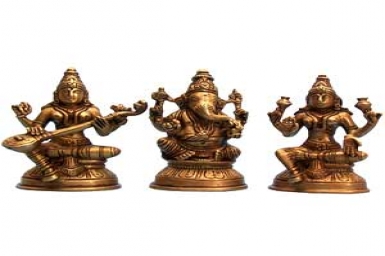

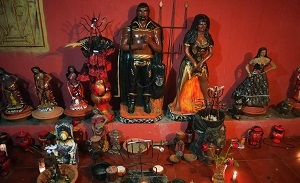

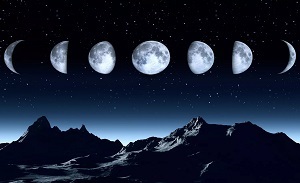



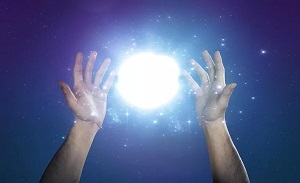
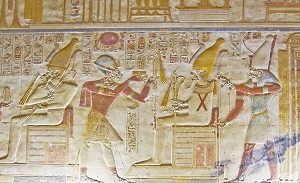

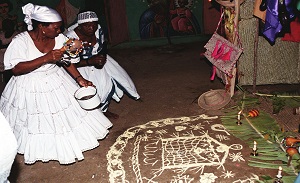

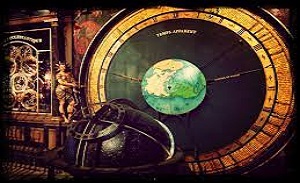

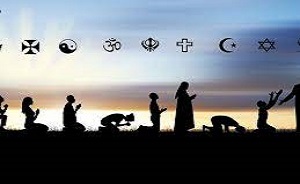
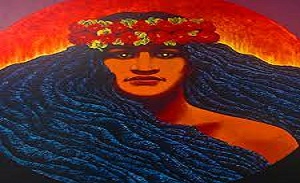
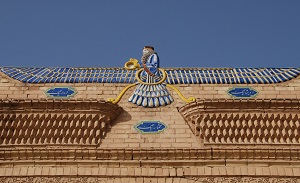

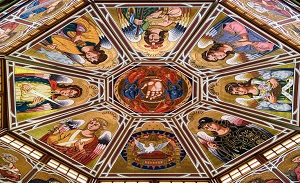
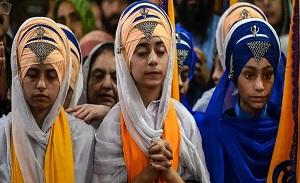
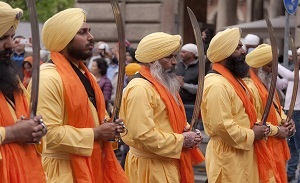
.jpg)
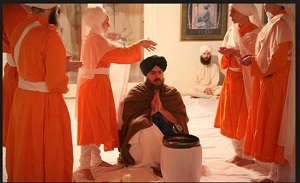
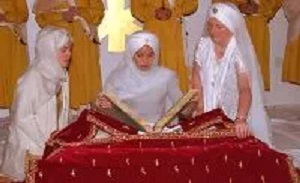
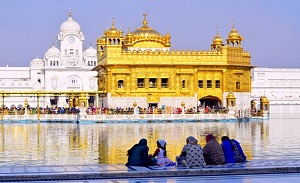
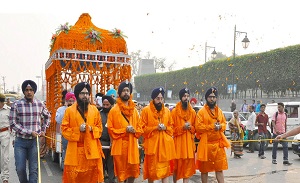

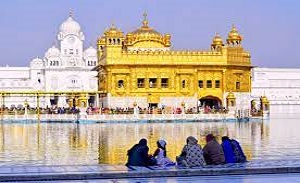
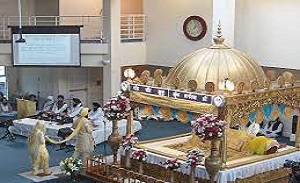
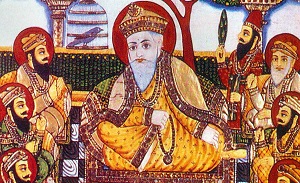
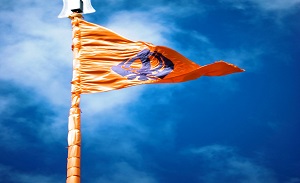
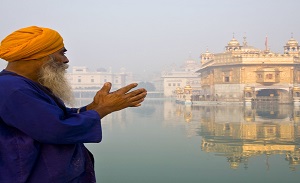
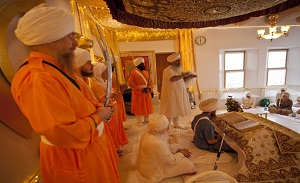
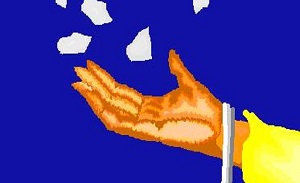
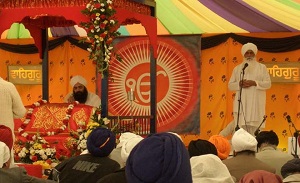
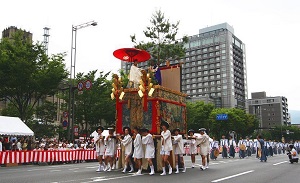

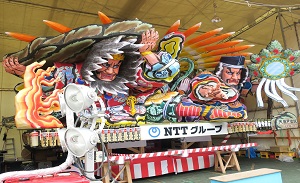
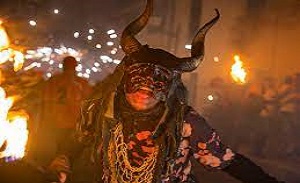

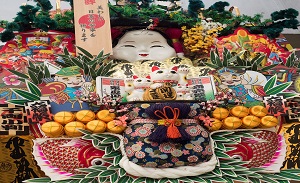
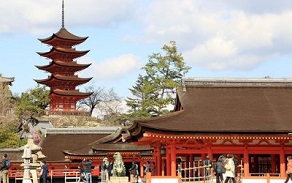

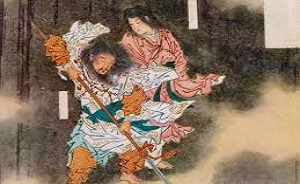
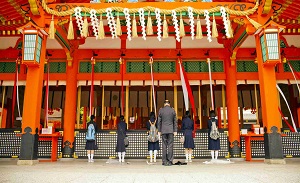

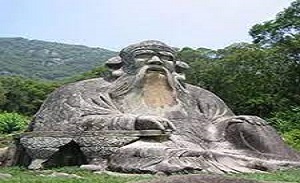

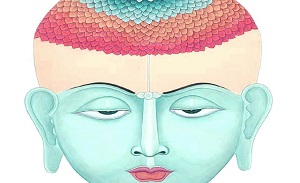

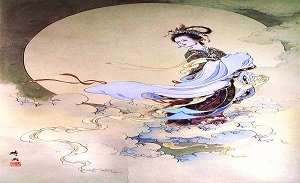

%2C%20the%20Un-manifest%20Aspect%20of%20the%20Tao.jpg)
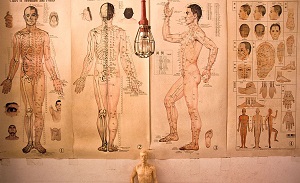

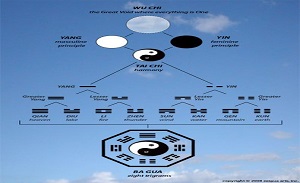
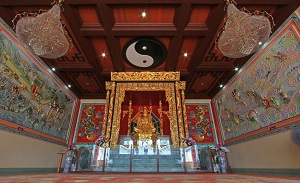
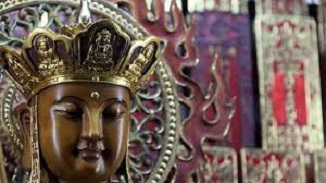
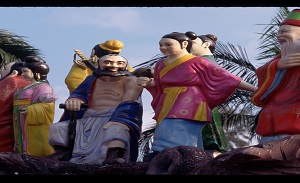


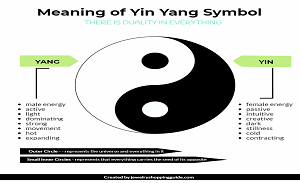
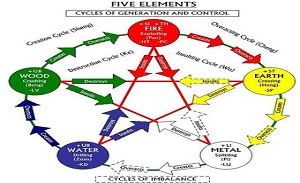
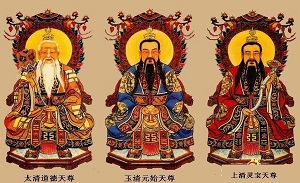
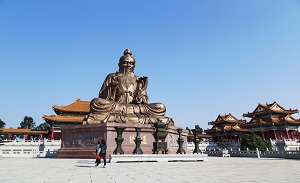
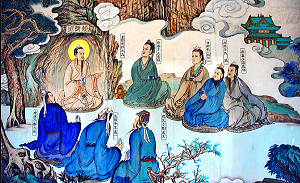

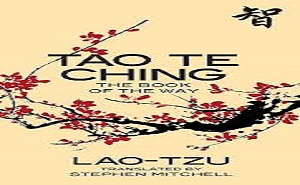
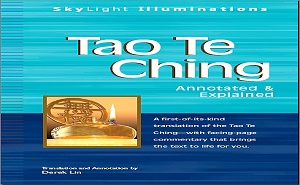
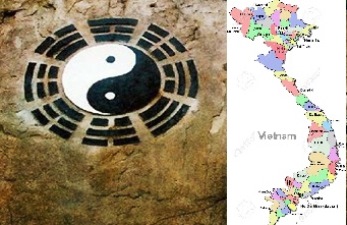
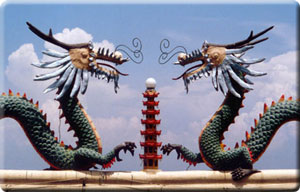
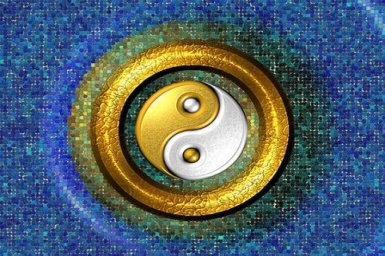
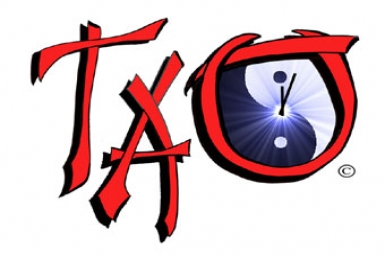
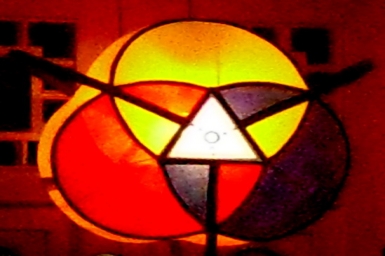


.jpg)



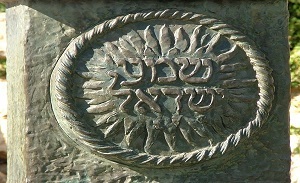
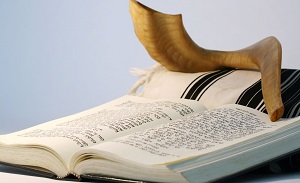
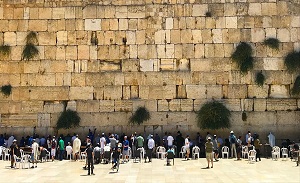
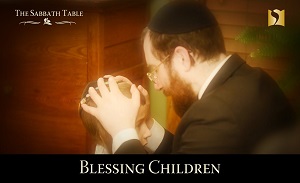
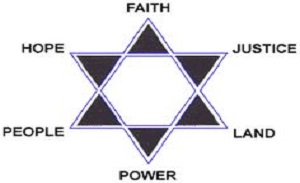
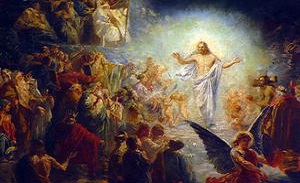
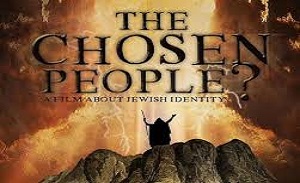


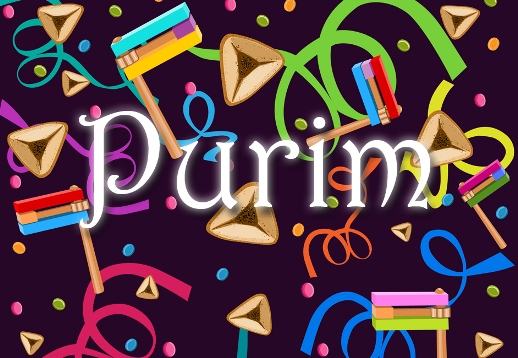

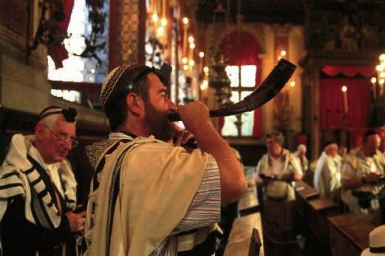
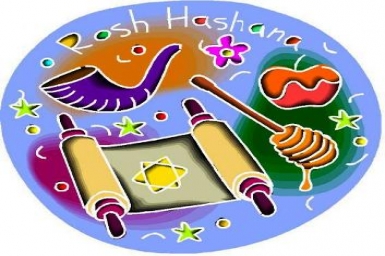

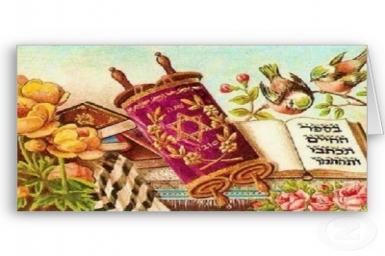
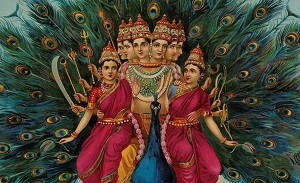
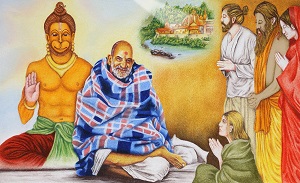


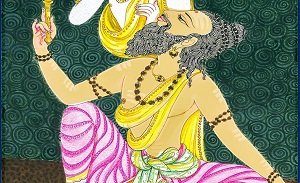

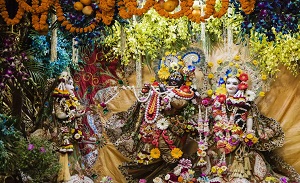
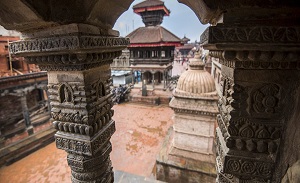

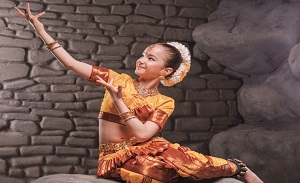
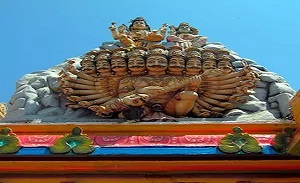


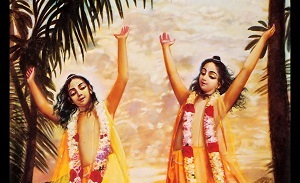
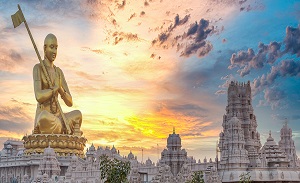
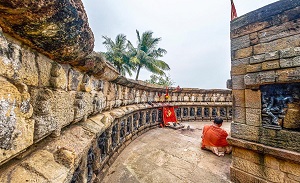
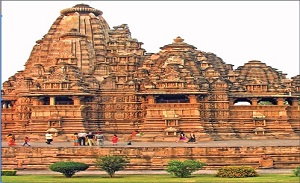
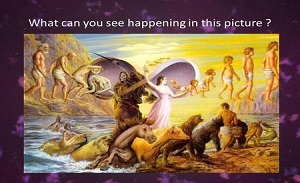
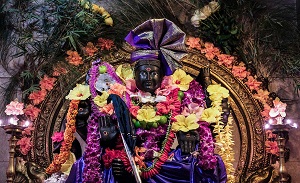
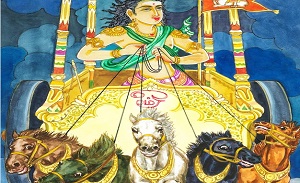
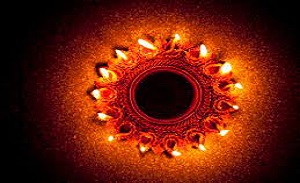
.jpg)
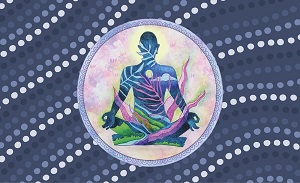
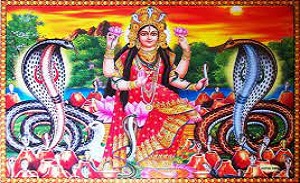

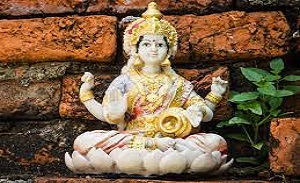
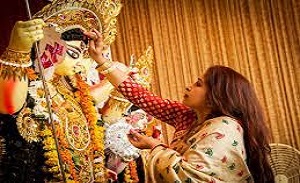
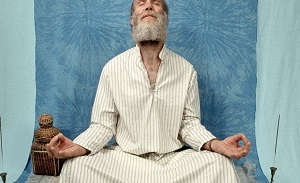
.jpg)
